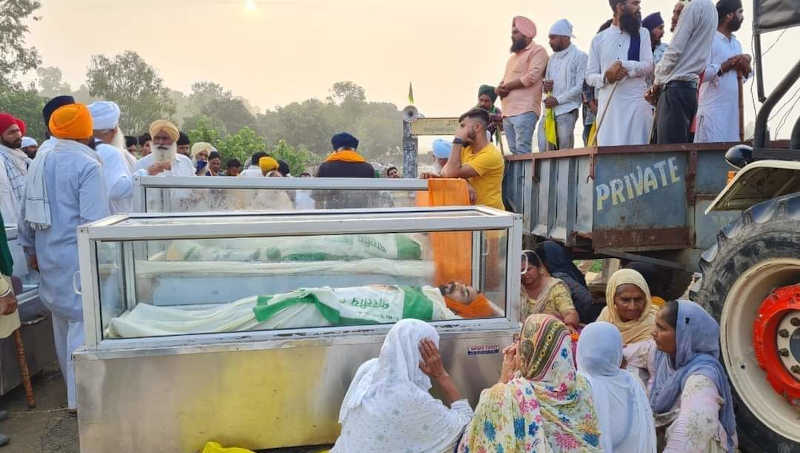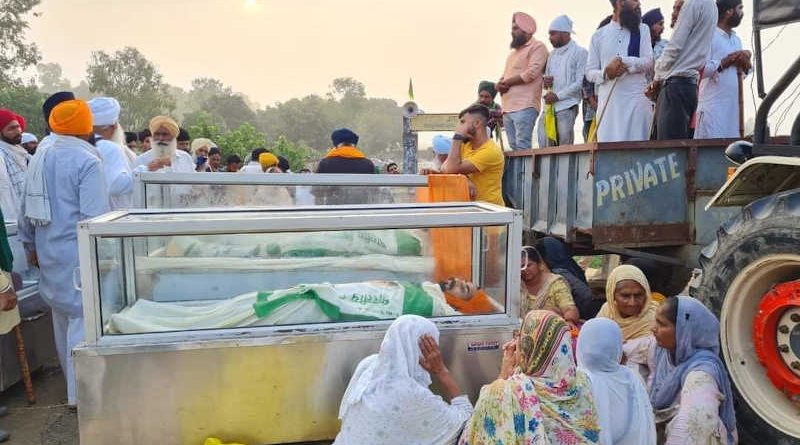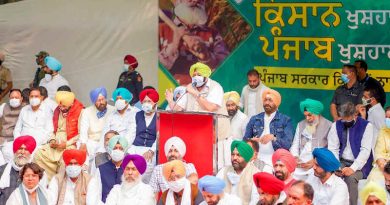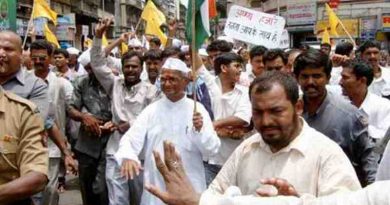Supreme Court Censures Protesting Farmers After UP Violence

As most judges in Indian courts lack courage, they do not hold the Modi government accountable for its questionable actions.
By Rakesh Raman
The Supreme Court of India has slammed protesting farmers saying that the court will examine in its next hearing on October 21 if the right to protest is an “absolute right.”
The reaction from the Supreme Court came today (October 4) after violence a day before at Lakhimpur Kheri in the Uttar Pradesh (UP) state. It is alleged that at least four farmers who were protesting there were run over by a car in Union Minister Ajay Singh Mishra’s convoy, driven by his son Ashish Mishra. According to an NDTV report, the police have filed a case of murder against Ashish Mishra.
Farmers – mainly from Punjab, Haryana, and UP states – have been protesting since November 2020 against the three farm laws recently announced by the government of prime minister (PM) Narendra Modi. Their demands also include the legal guarantee by the government to give a minimum support price (MSP) for certain crops.
However, the Modi government has refused to accept farmers’ demands. Farmers allege that the murder of farm protesters at Lakhimpur Kheri is a deliberate attempt by the government to disrupt the peaceful protests.
While it is the fundamental right of citizens to hold peaceful protests against the government decisions, strangely the Supreme Court has questioned farmers’ right to protest instead of directing the government to allow farmers to continue their agitation peacefully.
Of late, a group of farmers had filed a petition in the Supreme Court to allow them to hold protests at Jantar Mantar site in Delhi. While responding to the petition, Justices AM Khanwilkar and CT Ravikumar said that farmers should not protest when their case is sub judice.
As most judges in Indian courts lack courage, they do not hold the Modi government accountable for its questionable actions. They rather scold the harassed petitioners and pronounce random judgements that favor the government and harm the petitioners.
Earlier, in January, the Supreme Court had cleverly used its uncontestable authority to save the Modi government in its conflict with the protesting farmer unions.
With the ostensible decision to favor the protesting farmers, the top court surreptitiously helped the government by staying the execution of three contentious farm laws.
Although the farmer unions never demanded the deferment of the farm laws, the court ordered the government to postpone the implementation of laws, a dubious judicial action that gave a face-saving option to the Modi government which has failed to stop farmers’ protests.
Meanwhile, the farmers in Lakhimpur Kheri, who have been protesting over the deaths of their companions on October 3, have reached an understanding with the government and called off the protest from the site of the incident.
By Rakesh Raman, who is a national award-winning journalist and social activist. He is the founder of a humanitarian organization RMN Foundation which is working in diverse areas to help the disadvantaged and distressed people in the society.





